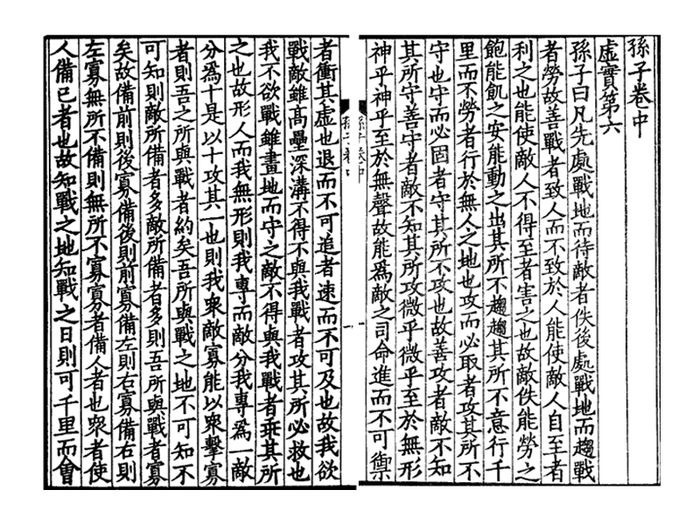(Translation) 2019 虛實
| Primary Source | ||
|---|---|---|
 |
Title | |
| English | ||
| Chinese | ||
| Korean(RR) | ||
| Text Details | ||
| Genre | ||
| Type | ||
| Author(s) | ||
| Year | ||
| Source | ||
| Key Concepts | ||
| Translation Info | ||
| Translator(s) | Participants of 2019 JSG Summer Hanmun Workshop (Intermediate Training Group) | |
| Editor(s) | ||
| Year | 2019 | |
Original Script
Translation
Student Translation : Hector Sanchez
Sunzi said: “In all cases, those who first settle in the battlefield and wait for their enemies are at ease and those who later settle in the battlefield and hasten to wage war are fatigued. Therefore, those who are good at waging war command others and are not commanded by others. Those who can make their enemies come, entice them. Those who can make their enemies not come, harm them. Thus, when the enemy is at ease, it can be fatigued.* When it is full, it can be starved. When it feels safe, it can be moved. Move to a place which they cannot reach. Reach a place that they have not thought of. Those who travel a thousand li and are not fatigued travel to the land of no one.
"Those who attack and always take [the spoils,] attack that which they [the enemy] do not guard. Those who guard and always solidify [their defenses,] guard that which they do not attack.
"Thus, as for those who are good at attacking, their enemies do not know what they guard. As for those who are good at guarding, their enemies do not know what they attack. With minuteness, they arrive at lacking form.** With supernaturality, they arrive at becoming without sound. Therefore, they can become the ministers of their enemy’s fate. Those who move forward and cannot be defended against, hit their emptiness. Those who retreat and cannot be pursued, are fast cannot be reached."
- Discussion Questions:
- HS: Note that I have change the original into the passive. I can’t quite figure out if the subject is the reader or “those who can…”
- HS: The passage I referred to in class comes from the first verse of the “Virtue” 德 (Ch. dé) section of the Laozi. 上德不德,是以有德 (Laozi 38:) "Superior Virtue is not virtuous, therefore it has virtue," in which the author of the Laozi distinguishes superior virtue (the virtue associated with the dao) from the phony virtue of Confucians. I think the use of equivocation in both texts might give us a hint regarding the time of publication of the Sunzi as well as its philosophical orientations.